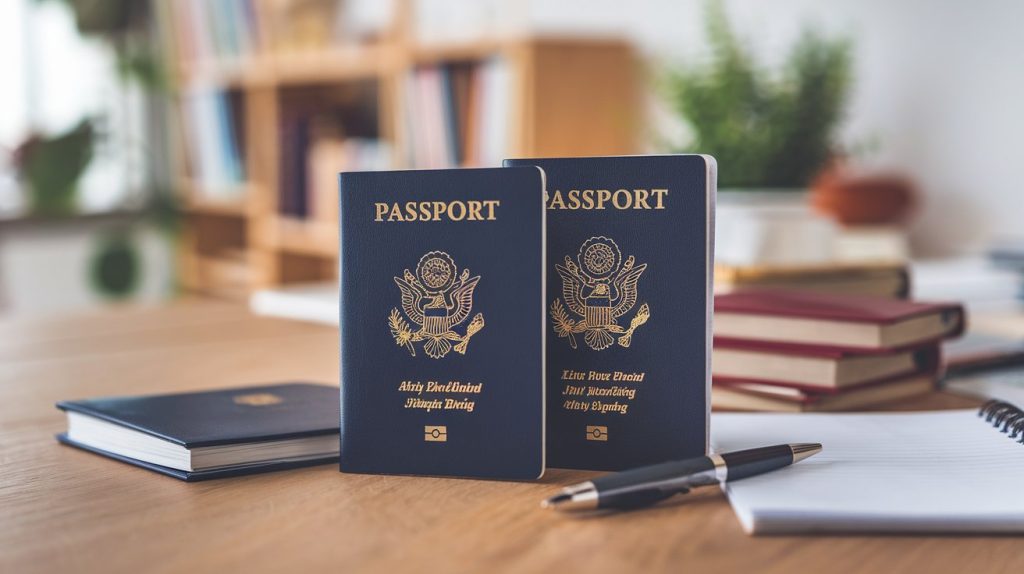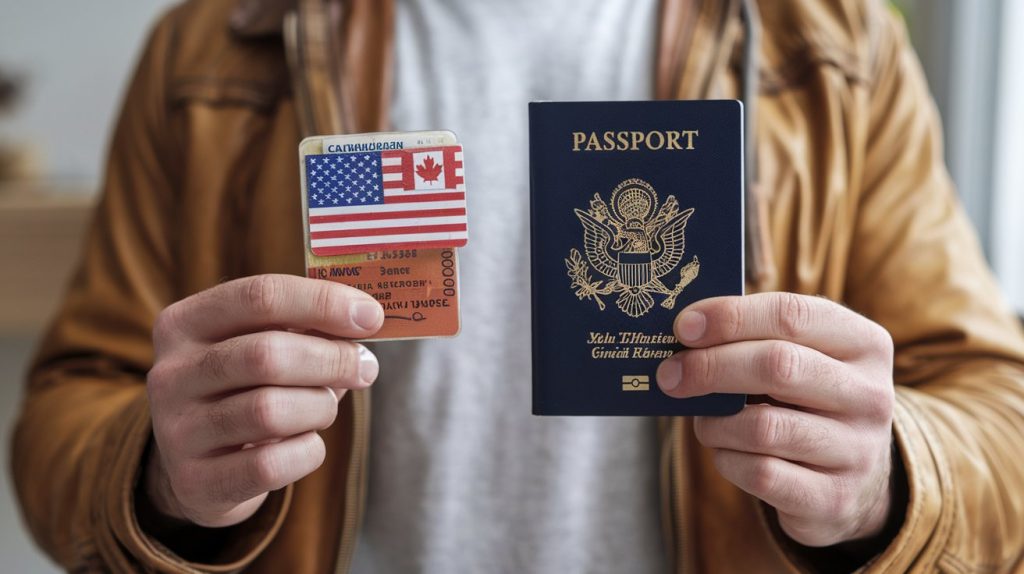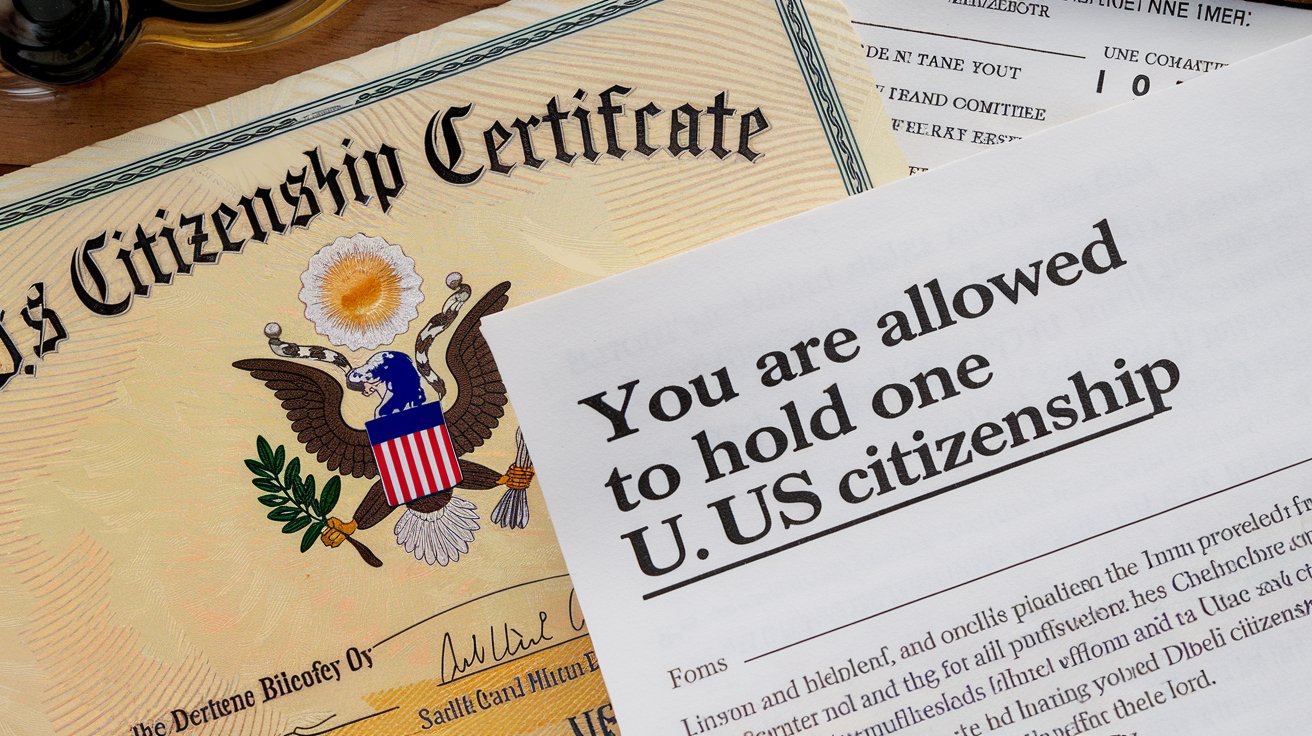Table of Contents
Have you ever wondered how many US citizenships a person can possess? This question is becoming more common as the world becomes increasingly interconnected. People are moving across borders for work, education, and family, leading to complex questions about citizenship. How many US citizenships are you allowed to hold? In this article, we will dive into the surprising truth about holding multiple citizenships in the US, breaking down everything you need to know.
Understanding US Citizenship

How many US citizenships are you allowed to hold? Uncover the Exciting Opportunities Before we explore how many citizenships you can have in the US, it’s essential to understand what US citizenship means. Citizenship is the legal status that grants you the rights and responsibilities of being a nation member. In the US, citizenship can be obtained in several ways, including by birth, naturalization, or through parents. Understanding the basics of US citizenship helps grasp the complexities of holding multiple citizenships.
Dual Citizenship in the US
Many ask, “Can you hold dual citizenship in the US?” The answer is yes. The US does allow dual citizenship, which means you can be a citizen of the US and another country simultaneously. How many US citizenships are you allowed to hold? However, it’s important to note that dual citizenship can come with specific challenges, such as tax obligations to both countries or conflicting laws. Despite these challenges, many people find dual citizenship beneficial, especially if they have strong ties to both nations.
Benefits of Dual Citizenship
How many US citizenships are you allowed to hold? Holding dual citizenship can provide numerous advantages. For example, you can enjoy the rights and privileges of both countries, such as access to social services, education, and employment opportunities. You can also travel more freely, with the ability to enter both countries without a visa. For some, dual citizenship strengthens cultural connections and provides a sense of belonging in both nations.
Challenges of Dual Citizenship
While dual citizenship has benefits, it also presents challenges. One significant challenge is the potential for double taxation, where you might have to pay taxes in both countries. Additionally, dual citizens must navigate the legal systems of both nations, which can sometimes lead to conflicts or difficulties, especially in areas like military service or voting rights. It’s crucial to be aware of these challenges before pursuing dual citizenship.
Also read: Can You Have a Sugar Glider as a Pet: Discover the Joyful Bond
Can You Have More Than Two Citizenships in the US?
How many US citizenships are you allowed to hold? This means that, technically, you can have more than two citizenships. However, managing multiple citizenships can be complicated and require careful planning and legal advice.
The Legal Perspective
From a legal standpoint, the US does not explicitly forbid holding more than two citizenships. The government does not require you to renounce your other citizenships when you become a US citizen, nor does it automatically revoke your US citizenship if you acquire another one. However, each country has its own rules regarding citizenship, so it’s essential to understand the laws of all countries involved.
Practical Considerations
While the US may not limit the number of citizenships you can hold, there are practical considerations to consider. For instance, countries have different laws and obligations for their citizens, such as mandatory military service, taxation, and legal responsibilities. Managing these obligations across multiple countries can be challenging and requires careful thought.
Why Some People Choose Multiple Citizenships
How many US citizenships are you allowed to hold? You might wonder why someone would want to hold multiple citizenships. This path is chosen by people for a variety of reasons. For some, it’s about maintaining strong ties to their homeland while enjoying the benefits of living in the US. Others seek the ability to travel freely, access education and healthcare in multiple countries, or diversify their economic opportunities.
Enhancing Global Mobility
How many US citizenships are you allowed to hold? One of the most significant advantages of holding multiple citizenships is enhanced global mobility. Citizenship in several countries can make international travel much easier, as you can enter more countries visa-free. This is especially valuable for business professionals, students, and those with family in different parts of the world.
Expanding Opportunities
Multiple citizenships can also expand opportunities in education, work, and business. For example, being a citizen of more than one country may allow you to study at universities in multiple nations or take advantage of only job opportunities available to citizens. It can also provide access to different markets and economic benefits that might only be available to some citizens.
The Risks of Multiple Citizenships
How many US citizenships are you allowed to hold? While multiple citizenships offer many benefits, they are not without risks. One significant risk is the potential for legal complications. Each country has its citizenship laws, which can sometimes conflict. For example, some countries do not recognize dual or multiple citizenships, which could lead to issues such as loss of citizenship or legal disputes.
Conflicting Obligations
How many US citizenships are you allowed to hold? Another risk is conflicting obligations between countries. For example, if two or more countries where you hold citizenship require military service, you could face difficult decisions or legal problems. Similarly, different tax laws could result in complex and costly financial obligations.
Political Risks
Political risks are also a consideration. Holding multiple citizenships can be a disadvantage in political tension or conflict. Some countries may view dual or various citizens with suspicion, especially if the countries conflict. This could lead to difficulties in accessing consular services or other forms of protection.
How to Manage Multiple Citizenships

How many US citizenships are you allowed to hold? If you decide to pursue multiple citizenships, managing them carefully is essential. Start by researching the laws of all countries involved, and consider consulting with legal experts specializing in citizenship issues. Stay informed about your obligations, such as taxes and military service, and keep accurate records of your status in each country.
Legal and Financial Planning
Sound legal and financial planning is crucial for managing multiple citizenships. Ensure you understand the tax implications of holding multiple citizenships and plan accordingly. You might also need to make arrangements for inheritance, property ownership, and retirement benefits across different countries.
Staying Informed
Finally, stay informed about changes in citizenship laws and policies. Citizenship laws can change, and knowing how these changes might affect your status is essential. Regularly review your citizenship situation and adjust to comply with all relevant laws.
So, How many US citizenships are you allowed to hold? The surprising truth is that the US allows you to hold a certain number of citizenships. When pursuing dual or multiple citizenship, carefully weigh the benefits and risks. How many US citizenships are you allowed to hold? By understanding the legal and practical aspects of having multiple citizenships, you can make informed decisions that best suit your personal and professional goals.

